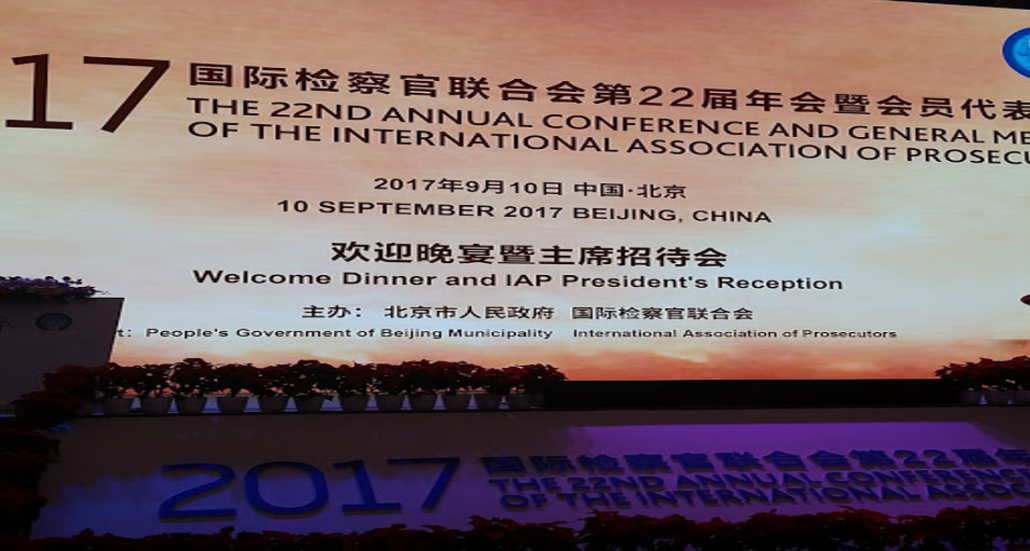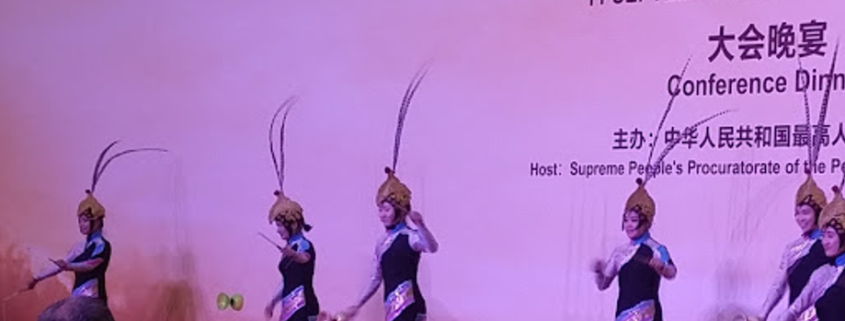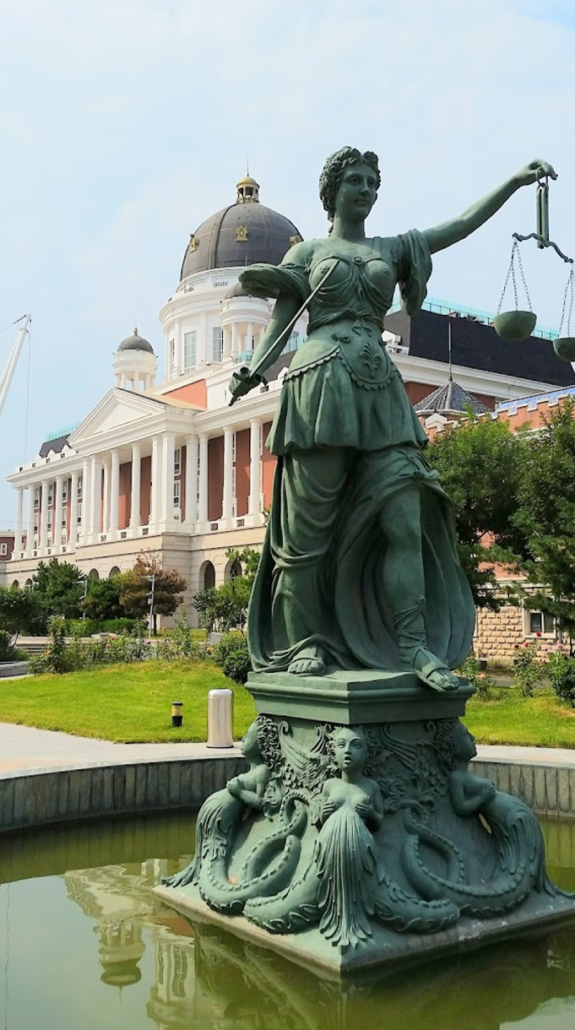22nd Annual IAP Conference & General Meeting
 The theme of the conference was “Prosecution in the Public Interest” and the conference attracted 450 delegates from over 90 countries to the Beijing Hotel, the conference centre close to Tiananmen Square and the Forbidden City. British Columbia was represented by Wendy Stephen, an IAP senator; Nicola Mahaffy, an IAP executive committee member (elected as VP of North America during the conference), Lionel Yip, Adam Dalrymple (BCCCA) and myself, David Jardine, also representing the BCCCA
The theme of the conference was “Prosecution in the Public Interest” and the conference attracted 450 delegates from over 90 countries to the Beijing Hotel, the conference centre close to Tiananmen Square and the Forbidden City. British Columbia was represented by Wendy Stephen, an IAP senator; Nicola Mahaffy, an IAP executive committee member (elected as VP of North America during the conference), Lionel Yip, Adam Dalrymple (BCCCA) and myself, David Jardine, also representing the BCCCA
The Grand Hotel Room of the Beijing Hotel hosted all the plenary sessions. The room’s history included being the official welcoming room of former leader Mao Tse-Tung used by him to welcome foreign dignitaries to China.
While the theme was Prosecution in the Public interest, the opening plenary sessions evolved into presentations focusing on maintaining the public interest in the digital age. The familiar theme of international cooperation was a highlight of the conference with an increased focus on practical issues in mutual legal assistance ( MLA). A MLA lab was on site in which experienced MLA lawyers took questions from anyone wanting help in solving a MLA problem.
The issues raised by the presenters on judicial cooperation were important and were raised against a backdrop of increases in terrorists acts in the last year. Belgium and England suffered terrorist attacks in the past year and European cooperation was key in the success of the investigations. The head of EuroJust, a Eurobased police force talked of the success of Euro arrest warrants that eliminate extraditions and result in suspects usually being rendered to the requesting country within 10 days of arrests instead of months or years. She, Michelle Coninsx, advocated the need for international arrest warrants that similarly would eliminate extraditions between countries.
Another topic raised that requires immense international cooperation were investigations into crypto-currencies and the obvious difficulties and challenges it presents to police forces and prosecutors trying to get at the money associated to crime ie take the profit away and so also will go the motivation for the crime.
A practical example was presented of a 4 year investigation called Operation Avalance that concluded in Novembe 2016 investigating massive internet attacks and the installation of trojan viruses. It was an multi-state operation that concluded with 5 arrests in Europe.
On day 2 the plenary featured a presentation from the chairman of a large Chinese Tech company called Ifly tek. Although some attendees took the view that the speech was simply trying to sell software that his company has developed, I thought it was designed to educate the delegates of the possibilities that artificial intelligence technolgies will make in our future work life, and that future is sooner than we think.
The presentation included simultaneous translation and transcription of the chairmans speech from Chinese to English. While AI translation and transcription are obvious examples which would make courts more efficient, the presenter went further in talking of having data inputted into AI computers to assist investigators or prosecutors in deciding if the case was being correctly handled and in assessing the quality of the evidence in a case. Our imaginations presently believe a human element in decision making in charges, but they made the case that as AI gets better – and it will as it gets more data to work with – that it may be better for the efficiency of the system to eliminate human biases that skew justice rather than enhance it.
The AI question and the speed with which China is introducing it became focal points of the many informal discussions between prosecutors around the world that make this such a valuable and worthwhile gathering.
The prosecutor of the year award is a highlight of IAP conferences. This year, a team from Uganda was chosen for their fearless workin prosecuting 13 members of a terrorist group, Al-shebab from Kenya, Tanzania and Uganda, who killed and injurded persons with a t bomb in downtown Kampala in 2010.
The team was successful despite the lead prosecutor being assassinated. The team gathered around the replacement Susan Okalong who led the team to 8 convictions. Ms Okalong was appointed a High Cout Justice in 2016 but attended the conference and accepted the award on behalf of her team and to honour her deceased colleague.
The final plenary session on Thursday focused on the conference theme of public interest, integrity and anti-corruption. Of interest to the BCCCA was the advocating by chief prosecutors from Cameroon and Portugal of the need for prosecutors to be guaranteed financial security in order for the prosecutor to be able to carry out their duties without fear of reprisal and as a reciprocal guarantee of their integrity. That was a point that I had not thought of before as we live in a country with little history of corruption. That is not the case in the rest of the world. There are UN documents on the role of the prosecutor in public life that can bolster our case to be treated differently than other public servants should our linkage to the judges come under attack in future negotiations.
The conference ended on Thursday and our gracious hosts took us on a trip to the Great Wall on the Friday. The Great Wall is a busy and crowded tourist site but it is spectacular. The imagine boggles at the engineeering and manpower needed 2000 years ago to build a wall over 6,000 km long.
Lunch that day was provided at the National Prosecutors School near Beijing. Depicted below is a photo of the statue of justice. Notice the lack of blindfold and the odd pedestal upon which it is mounted. No-one I spoke to has an explanation for the significance of the four seemingly pregnant sirens.
The IAP conference reminds all of the best practices to use in chosen profession and highlights the extraordinary work being done by prosecutors around the world. The conference is an important gathering of significance in the legal world and is worthy of continued BCCCA support.
David Jardine.



